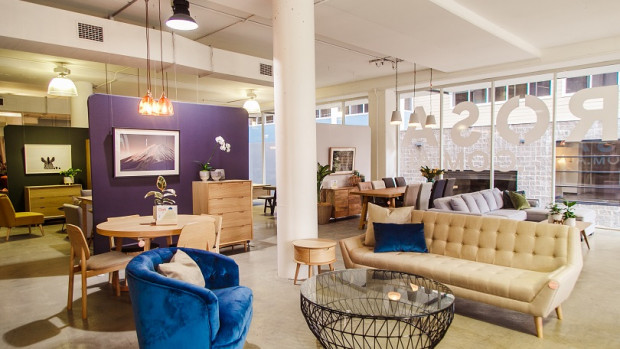
Brosa launches second bricks-and-mortar showroom
Online furniture brand Brosa opened a Brisbane-based pop-up store over the weekend, showcasing over 300 of its products in Fortitude Valley.
The Brosa Studio+ store will allow customers access to one-on-one home styling consultations, as well as free fabric samples, and will be open seven days a week.
“From one room to an entire home, the qualified team of interior designers and stylists welcome consumers to think creatively, bring floor plans and mood boards for the experienced team to craft a personalised consultation,” Brosa said.
According to the retailer, the pop-up is an exciting step for the once digital-only brand, following the opening of its first bricks-and-mortar showroom in Melbourne’s Fitzroy neighbourhood in September.
Brosa co-founder and chief executive Ivan Lim recently told Inside Retail the business’s physical stores are the culmination of retail as it should be.
“I think there’s a real opportunity here for us to make it a hub for customers to experience the brand,” Lim said about the Studio+ concept.
While Brosa trialled appointment-only showroom experiences previously, it refocused the offer into what became the Studio+ concept earlier this year – with QR tagged furniture enabling customers to easily source information about the products on display, and allowing the showroom to more easily track popular items.
Millennials leading the way
Founded in 2014, Brosa entered a largely bricks-and-mortar focused market with few online rivals. While customers have been slow to adopt online as a means of purchase due to the challenges inherent in not being able to see the products before purchase, this is beginning to change with time.
Earlier this year, online rival Temple & Webster listed its first profitable year since launching in 2011, and said at its recent AGM it had started this year with trading up 45 per cent.
According to Temple & Webster chief executive Mark Coulter, this shift is being driven by the millennial generation.
“Our hypothesis remains that the shift to online, which is being driven by the older millennials and those that have grown up buying everything online, is independent of broader macroeconomic factors,” Coulter said, in regard to the company’s growth despite the difficulties seen in Australia’s property market.
Even renovations-focused Bunnings Warehouse is taking aim at millenials, launching a nine-part DIY series on YouTube aimed at educating potential first home owners in small-space renovations that can be completed on a more modest budget.
“We know that younger Australians see DIY differently, having less aptitude towards traditional DIY and are turning toward interior design trends and easy cosmetic upgrades to freshen up their homes,” Bunnings general manager Keith Murray said.
